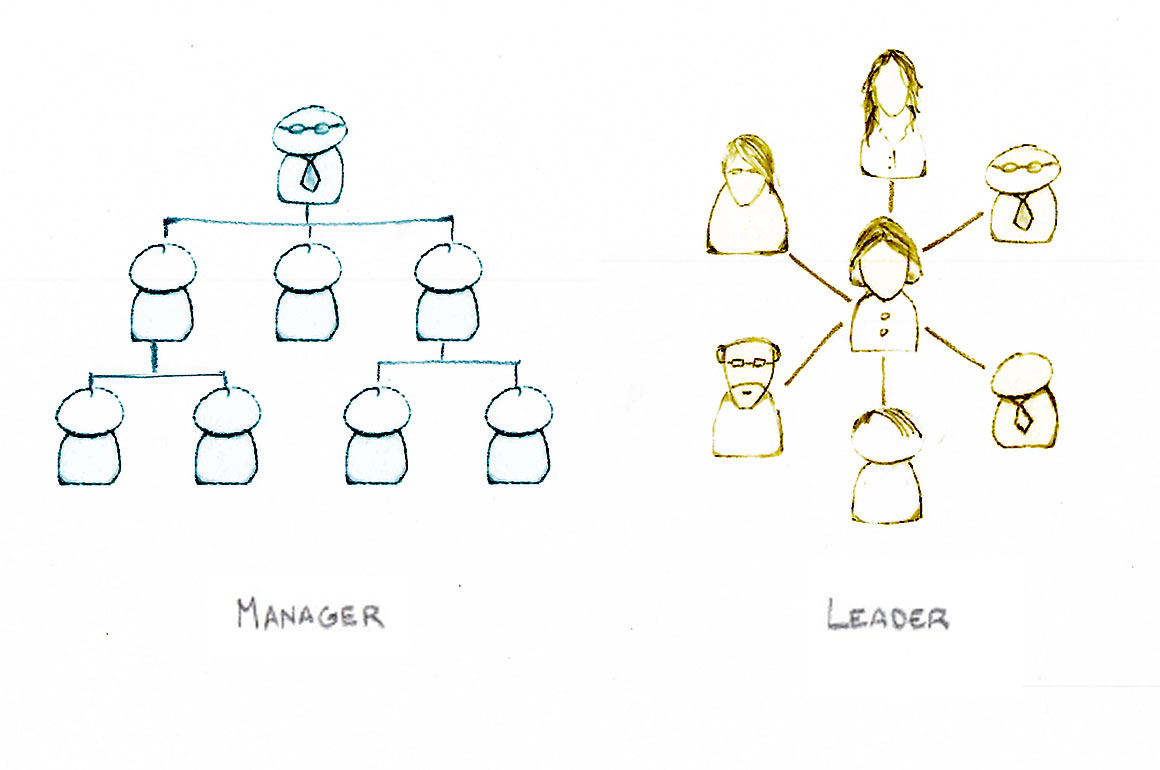Who is everyone?
Not everyone wants to be a manager.
Not everyone wants to be a manager. Some people find themselves in the role accidentally or reluctantly – someone else positioned them as leaders. Others became managers out of aspiration, but later realize the lack of interest or alignment in the role and then struggle to secede the position. Being a manager means being a leader and getting the opportunity lets you assess if it’s the best use of you.
People often say they are driven by power, money, fame or prestige. Notably absent is happiness, productivity and impact!
So, if not everyone wants to be a manager, why does it feel like sometimes everyone you know wants to become one. That has more to do with what seems to drive most people, often a combination of power, money, fame or prestige. To be clear, we are not taking a position on if these are the right things to be driven by. Notice for example happiness, productivity or impact are not listed. That said, of power, money, fame or prestige are presented in the discussion when considering professional motivation and used here to at least address common (mis)beliefs.
Aspiring to be a manager
Power
“…I can tell others what to do.”
In a recent Harvard Business Review article, Bill Taylor cited the responses of an MIT Sloan School of Management class asked what it meant to be promoted to manager. The response? “They said without hesitation, ‘It means I can now tell others what to do.’” Taylor’s article is interesting in of itself, but as we reviewed the question for this week, that quote stood out. At a minimum we can see that for some people, becoming a manager has to do with the power of directing the work of others.
Money
Managers typically make more money. Why? They are responsible for the success (and failures) of others and their scope encompasses the scopes of the individuals they lead. Added compensation is simply recognizing the change in contribution.
Fame & Prestige
Not all promotions are based on merit, so titles are not always qualitative.
Becoming a manager can be a gateway to becoming an executive. Most executives have management responsibilities and while rank does not always correlate with effective leadership there is a belief that to have made it to that level, you must be accomplished. The challenge with most promotions is that they may or may not be merit based. While that may seem counter intuitive, there are lots of reasons people get promoted and being an awesome leader is not always a requirement. Here in lies the other two motivating factors, fame and prestige.
Fame
Fame is the recognition of being known for the achievement of the title. It is not uncommon to hear reverence to a certain rank in a company. In banks it is having the title of Managing Director. It doesn’t matter that you might have a chain of managing directors before finding the head of the bank, they all share the title and the rank is significant in that ecosystem. In other workplaces it might be a Senior Vice President title, where it distinguishes the senior most leadership running the company. Either way, some people like being known in their circles as having “made it.”
Prestige
Prestige on the other hand is all about the admiration for the merit of the position. This distinguishes from the ambiguity often found in manager promotions where it is not always clear what the basis of the promotion is, and instead it speaks to the required evidence of past success. Prestige is often brought to the title vs. inherently residing in the role. It may be difficult to become CEO, so even if you do not know the individual in the role, you know its hard to achieve. As a manager, you must merit the admiration to achieve prestige.
None of those qualities motivates you?
Happiness doesn’t come from a title.
The promotion to manager is about embracing the responsibility of a challenging dynamic and scope. Often you keep the responsibilities that positioned you as an SME (subject matter expert) and add the new goals of leading and developing a team—working through others. Most importantly, becoming a manager is taking on the responsibility for a part of the business. Until that moment, you are contributing but not fully responsible. As you enter and progress through management roles your closeness to business increases. With the added scope and success, you benefit with additional rewards… power, money, fame or prestige. What won’t be answered by finding yourself with a fancy title is happiness.
Become a manager because you want the leadership experience and stay one because you are uniquely capable in the role.
Happiness as it relates to work comes with your ability to succeed with work you are passionate about. While not everyone believes in or works from a source of passion, it impacts fulfillment. If your work is not making you happy, make sure something else is. Ideally, align your work with what you love because suddenly all you are doing is living.
People want to be managers for a variety of reasons, chief among them is the thought that the grass is greener in a position of power. If they find out its not, then it is often thought that at least being in charge of others over less or equally green grass is a better position to be in. These are all misguided ideas.
- First, you can be a leader without being a manager. However, not having management experience will make it harder to successfully deliver in executive ranks. That is okay, because those roles are not for everyone.
- Second, become a manager because you want the leadership experience and stay one because you are uniquely capable in the role.











Leave a Comment